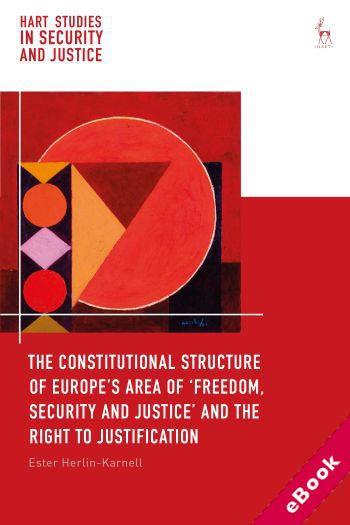
The device(s) you use to access the eBook content must be authorized with an Adobe ID before you download the product otherwise it will fail to register correctly.
For further information see https://www.wildy.com/ebook-formats
Once the order is confirmed an automated e-mail will be sent to you to allow you to download the eBook.
All eBooks are supplied firm sale and cannot be returned. If you believe there is a fault with your eBook then contact us on ebooks@wildy.com and we will help in resolving the issue. This does not affect your statutory rights.
This book explores the implications of freedom as a non-domination-oriented view for understanding EU security regulation and its constitutional implications. At a time when the European borders are under pressure and with the refugee and migration crisis which escalated in 2015 an extreme challenge to tackle and resolve, the idea of exploring a constitutional theory for the “Area of Freedom, Security and Justice” (AFSJ), might seem to be a utopian project. This appears especially true in the light of the increased threat of terrorism in Europe (and on a global scale) and where the expanding EU security agenda at present is often advanced through the administrative law path, in contrast to the constitutional trajectory. Add to this the prolonged financial crisis, which continues to cast a long shadow on the future development of EU integration, and which suggests that Europe needs to “re-invent itself” beyond the sphere of economics. Therefore, it is precisely because of the current uncertainties regarding the progress of the EU and the constitutional law project that a constitutional take on the AFSJ is of particular importance. This book zooms in on the trajectory of an AFSJ, what it means, and why it represents a fascinating example of contemporary constitutional law with interacting layers of security regulation, human rights law and transnational legal theory at its core.